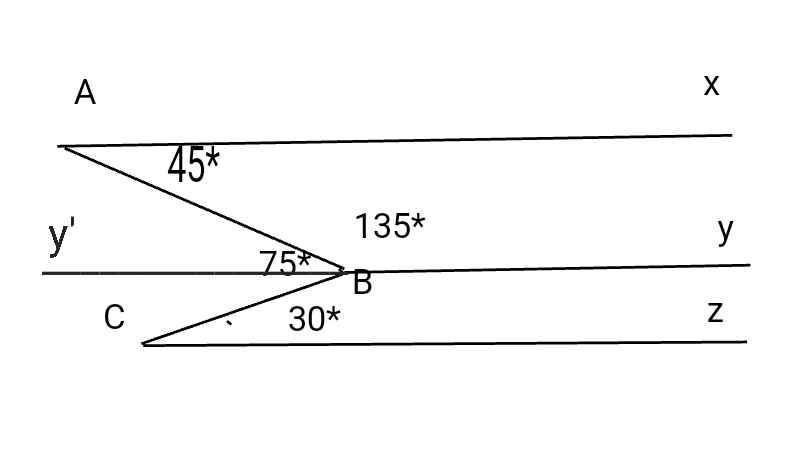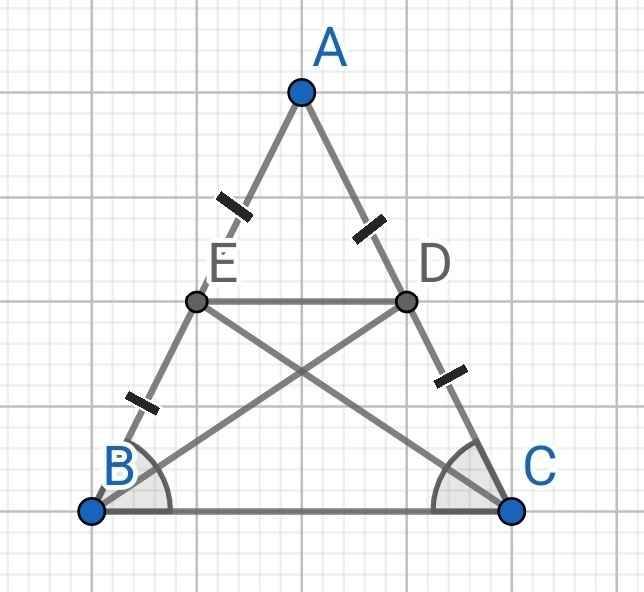tìm x là số tự nhiên
A=3x-1/x+2
Hãy nhập câu hỏi của bạn vào đây, nếu là tài khoản VIP, bạn sẽ được ưu tiên trả lời.


\(\dfrac{x-6}{1998}\) + \(\dfrac{x-4}{2000}\) = \(\dfrac{x-2000}{4}\) + \(\dfrac{x-1998}{6}\)
\(\dfrac{x-6}{1998}\) - 1 + \(\dfrac{x-4}{2000}\) - 1 = \(\dfrac{x-2000}{4}\) - 1 + \(\dfrac{x-1998}{6}\) - 1
\(\dfrac{x-6-1998}{1998}\) + \(\dfrac{x-4-2000}{2000}\) = \(\dfrac{x-2000-4}{4}\) + \(\dfrac{x-1998-6}{6}\)
\(\dfrac{x-2004}{1998}\) + \(\dfrac{x-2004}{2000}\) = \(\dfrac{x-2004}{4}\) + \(\dfrac{x-2004}{6}\)
(\(x-2004\)).[\(\dfrac{1}{1998}\) + \(\dfrac{1}{2000}\) - \(\dfrac{1}{4}\) - \(\dfrac{1}{6}\)] = 0
\(x\) - 2004 = 0
\(x\) = 2004

\(\dfrac{x+1}{65}+\dfrac{x+3}{63}+\dfrac{x+5}{61}+\dfrac{x+7}{59}\)
\(\Leftrightarrow\dfrac{x+1}{65}+\dfrac{x+3}{63}-\dfrac{x+5}{61}-\dfrac{x+7}{59}=0\)
\(\left(\dfrac{x+1}{65}+1\right)+\left(\dfrac{x+3}{63}+1\right)-\left(\dfrac{x+5}{61}+1\right)-\left(\dfrac{x+7}{59}+1\right)\)
\(\Leftrightarrow\dfrac{x+66}{65}+\dfrac{x+66}{63}+\dfrac{x+66}{61}+\dfrac{x+66}{59}=0\)
\(\Leftrightarrow\left(x+66\right).\left[\left(\dfrac{1}{65}+\dfrac{1}{63}\right)-\left(\dfrac{1}{61}+\dfrac{1}{59}\right)\right]\)\(=0\)
Do \(\dfrac{1}{65}< \dfrac{1}{63}< \dfrac{1}{61}< \dfrac{1}{59}\)
\(\Rightarrow\left(\dfrac{1}{65}+\dfrac{1}{63}\right)-\left(\dfrac{1}{61}+\dfrac{1}{59}\right)< 0\)
Vậy để \(\left(x+66\right).\left[\left(\dfrac{1}{65}+\dfrac{1}{63}\right)-\left(\dfrac{1}{61}+\dfrac{1}{59}\right)\right]=0\)
\(\Leftrightarrow x+66=0\)
\(\Leftrightarrow x=-66\)
Vậy \(x\in\left\{-66\right\}\)

\(\left(\dfrac{1}{10}\right)^{15}=\left[\left(\dfrac{1}{10}\right)^3\right]^5=\left(\dfrac{1}{1000}\right)^5=\left(\dfrac{10}{10000}\right)^5\)
\(\left(\dfrac{3}{10}\right)^{20}=\left[\left(\dfrac{3}{10}\right)^4\right]^5=\left(\dfrac{81}{10000}\right)^5\)
\(\dfrac{10}{10000}< \dfrac{81}{10000}\)
\(\Rightarrow\left(\dfrac{10}{10000}\right)^5< \left(\dfrac{81}{10000}\right)^5\)
\(\Rightarrow\left(\dfrac{1}{10}\right)^{15}< \left(\dfrac{3}{10}\right)^{20}\)
Ta có:
\(\left(\dfrac{1}{10}\right)^{15}=\left[\left(\dfrac{1}{10}\right)^3\right]^5=\left(\dfrac{1}{1000}\right)^5\)
\(\left(\dfrac{3}{10}\right)^{20}=\left[\left(\dfrac{3}{10}\right)^4\right]^5=\left(\dfrac{81}{10000}\right)^5\)
Ta thấy: \(\dfrac{1}{1000}< \dfrac{81}{10000}\)
\(\Rightarrow\left(\dfrac{1}{1000}\right)^5< \left(\dfrac{81}{10000}\right)^5\)
\(\Rightarrow\left(\dfrac{1}{10}\right)^{15}< \left(\dfrac{3}{10}\right)^{20}\)


a) Vẽ tia By' là tia đối của tia By
Ta có:
∠ABy' + ∠ABy = 180⁰ (kề bù)
⇒ ∠ABy' = 180⁰ - ∠ABy
= 180⁰ - 135⁰
= 45⁰
⇒ ∠ABy' = ∠BAx = 45⁰
Mà ∠ABy' và ∠BAx là hai góc so le trong
⇒ By // Ax
b) Ta có:
∠CBy' = ∠ABC - ∠ABy'
= 75⁰ - 45⁰
= 30⁰
⇒ ∠CBy' = ∠BCz = 30⁰
Mà ∠CBy' và ∠BCz là hai góc so le trong
⇒ By // Cz

\(a^m=a^n\)
\(\Rightarrow m=n\)
Với \(a^m=a^n\) mọi \(m=n\)
Vậy: \(m=n\in\left\{1;2;3;4;...\right\}\)

Tìm \(x\) biết: |\(x\) + 1| + |\(x\) + 4| = 3\(x\) ( đk \(x\) ≥ 0)
|\(x\) + 1| + | \(x\) + 4| = 3\(x\)
Với \(x\) ≥ 0 ta có: \(x\) + 1 + \(x\) + 4 = 3\(x\)
2\(x\) + 5 = 3\(x\)
3\(x\) - 2\(x\) = 5
\(x\) = 5 (thỏa mãn)
Vậy \(x\) = 5
\(\left|x+1\right|+\left|x+4\right|=3x\left(1\right)\)
Ta có :
\(\left|x+1\right|+\left|x+4\right|\ge\left|x+1+x+4\right|=\left|2x+5\right|\)
\(pt\left(1\right)\Leftrightarrow\left|2x+5\right|=3x\)
\(\Leftrightarrow\left[{}\begin{matrix}2x+5=3x\\2x+5=-3x\end{matrix}\right.\)
\(\Leftrightarrow\left[{}\begin{matrix}x=5\\5x=-5\end{matrix}\right.\)
\(\Leftrightarrow\left[{}\begin{matrix}x=5\\x=-1\end{matrix}\right.\)

 a) Do ∆ABC cân tại A
a) Do ∆ABC cân tại A
⇒ AB = AC (1)
Do BD là đường trung tuyến
⇒ D là trung điểm của AC
⇒ AD = CD (2)
Do CE là đường trung tuyến
⇒ E là trung điểm của AB
⇒ AE = BE (3)
Từ (1), (2) và (3)
⇒ AE = AD
∆AED có:
⇒ AE = AD (cmt)
⇒ ∆AED cân tại A
b) ∆AED cân tại A (cmt)
⇒ ∠AED = ∠ADE = (180⁰ - ∠A) : 2 (4)
∆ABC cân tại A
⇒ ∠ABC = ∠ACB = (180⁰ - ∠A) : 2 (5)
Từ (4) và (5)
⇒ ∠AED = ∠ABC
Mà ∠AED và ∠ABC là hai góc đồng vị
⇒ ED // BC
Tứ giác BCDE có:
ED // BC (cmt)
⇒ BCDE là hình thang
Mà ∠CBE = ∠BCD (∆ABC cân tại A)
⇒ BCDE là hình thang cân

\(a=2^{100}=\left(2^4\right)^{25}=16^{25}\)
\(b=3^{75}=\left(3^3\right)^{25}=27^{25}\)
\(c=5^{50}=\left(5^2\right)^{25}=25^{25}\)
Vì \(16^{25}< 25^{25}< 27^{25}\)
\(\Rightarrow a< c< b\)
\(a=2^{100},b=3^{75},c=5^{50}\\ \Rightarrow a=30^{85},b=30^{65},c=30^{44}\\ \Rightarrow a>b>c\)

Ta gọi \(x;y;z\) là số tờ tiền loại \(2000;5000;10000\)
Tổng giá trị 3 cọc tiền là:
\(2000.x+5000.y+10000.z\)
Giá trị 3 cọc tiền bằng nhau là:
\(2000.x=5000.y=10000.z\)
\(\Leftrightarrow\dfrac{x}{5000.10000}=\dfrac{y}{2000.10000}=\dfrac{z}{2000.5000}\)
\(=\dfrac{x+y+z}{50000000+20000000+10000000}\)
\(=\dfrac{72}{80000000}=\dfrac{9}{10000000}\)
Áp dụng tính chất dãy tỉ số bằng nhau ta có:
\(\Rightarrow x=50000000.\dfrac{9}{10000000}=45\)
\(\Rightarrow y=20000000.\dfrac{9}{10000000}=18\)
\(\Rightarrow z=10000000.\dfrac{9}{10000000}=9\)
Vậy loại \(2000\) đồng có \(45\) tờ
Loại \(5000\) đồng có \(18\) tờ
Loại \(10000\) đồng có \(9\) tờ
\(A=\dfrac{3x-1}{x+2}\inℕ\left(x\inℕ;x\ne-2\right)\)
\(\Rightarrow3x-1⋮x+2\)
\(\Rightarrow3x-1-3\left(x+2\right)⋮x+2\)
\(\Rightarrow3x-1-3x-6⋮x+2\)
\(\Rightarrow-7⋮x+2\)
\(\Rightarrow x+2\in U\left(7\right)=\left\{1;7\right\}\)
\(\Rightarrow x\in\left\{-1;5\right\}\)
\(\Rightarrow x\in\left\{5\right\}\left(x\inℕ\right)\)